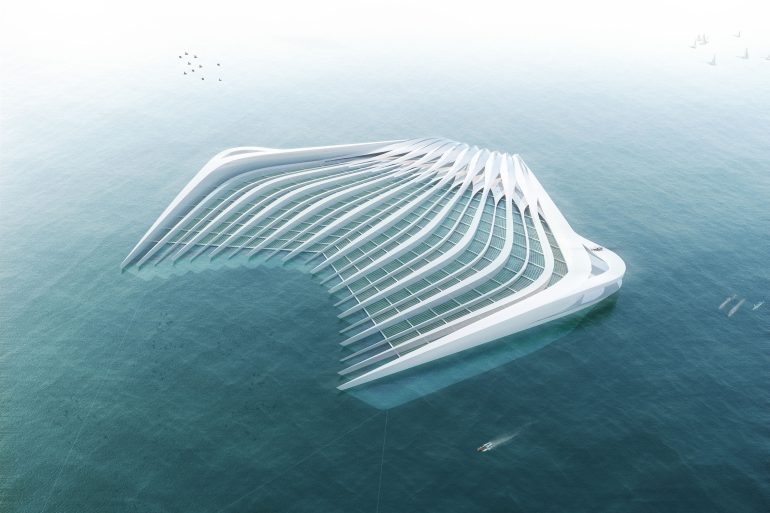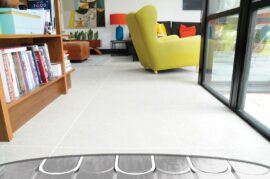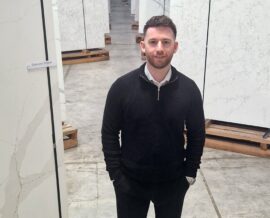GROHE has announced its support of the Pacific Garbage Screening (PGS) project of architect Marcella Hansch. Together with an interdisciplinary team of natural scientists, engineers and marine biologists, the trained architect is working on the development of a water platform that will collect plastic waste before it damages the ecosystems in oceans and rivers. The vision of clean water through the reduction of plastic waste is also of vital importance for GROHE.
GROHE will not only support the project financially, but representatives of GROHE and PGS also plan to join forces to draw the public’s attention to the worldwide plastic problem and to forward-thinking solutions. “We are very much looking forward to working with Marcella Hansch and PGS. The enormous amount of plastic waste in rivers and oceans are a collective problem and represent one of the greatest challenges of our time. This is why we directly decided to promote such an important project for the reduction of plastic waste,” explains Thomas Fuhr, CEO of Grohe AG, confirming the commitment: “We are particularly impressed with how passionately Marcella Hansch and her team dedicate themselves to their mission. They not only want to create a solution that extracts plastic from the ocean, but also encourage people to change their minds.”
The Pacific Ocean Screening collaboration with GROHE is also significant for Marcella Hansch: “Partnerships are incredibly important for us, because we can only tackle a global problem together. We are excited about the commitment of GROHE to avoid using plastic and reduce plastic as much as possible with regard to their products but also in their production chain. That is why we are very much looking forward to working with them.”
During a dive, Marcella Hansch encountered copious amounts of plastic waste instead of fish. She immediately realised that there was an urgent need for action. This led to an in-depth study of a technical solution for the reduction of plastic waste in the oceans in her thesis. Since then, the idea has continuously evolved: to prevent the pollution of the oceans, PGS concentrates on the moment where plastic waste enters the oceans. Specifically, the focus is on a floating platform. Its design makes it possible to extract plastic particles from the water. Since it is assumed that around 80% of plastic waste in the oceans is generated on land2 and rivers are regarded as major pathways, the platforms are to be used in rivers and estuaries.
GROHE pursues a 360-degree sustainability approach that in equal measure encompasses employees, suppliers, customers, processes, products and its societal contribution. In this way, the global brand not only develops resource-saving product innovations that enable consumers to live more sustainably but also aims to 1 DHU 2019, https://www.duh.de/mehrweg-klimaschutz0/einweg-plastikflaschen/ 2 Li et al., (2016): Plastic waste in the marine environment: A review of sources, occurrences and effects. The use of green electricity, photovoltaics and combined heat and power plants is of decisive importance here. From 2020, the sanitary brand will support two compensation projects in order to offset CO2 emissions, which have thus far not been reducible.
For its continuous efforts, GROHE has once again been nominated for the top 3 “most sustainable big companies 2020” at the German Sustainability Award.
More news from GROHE






